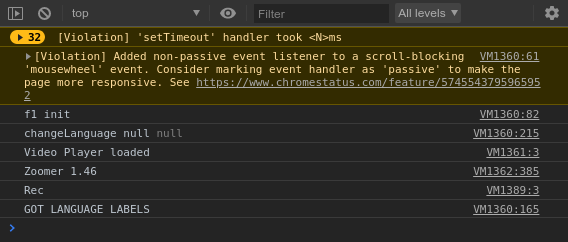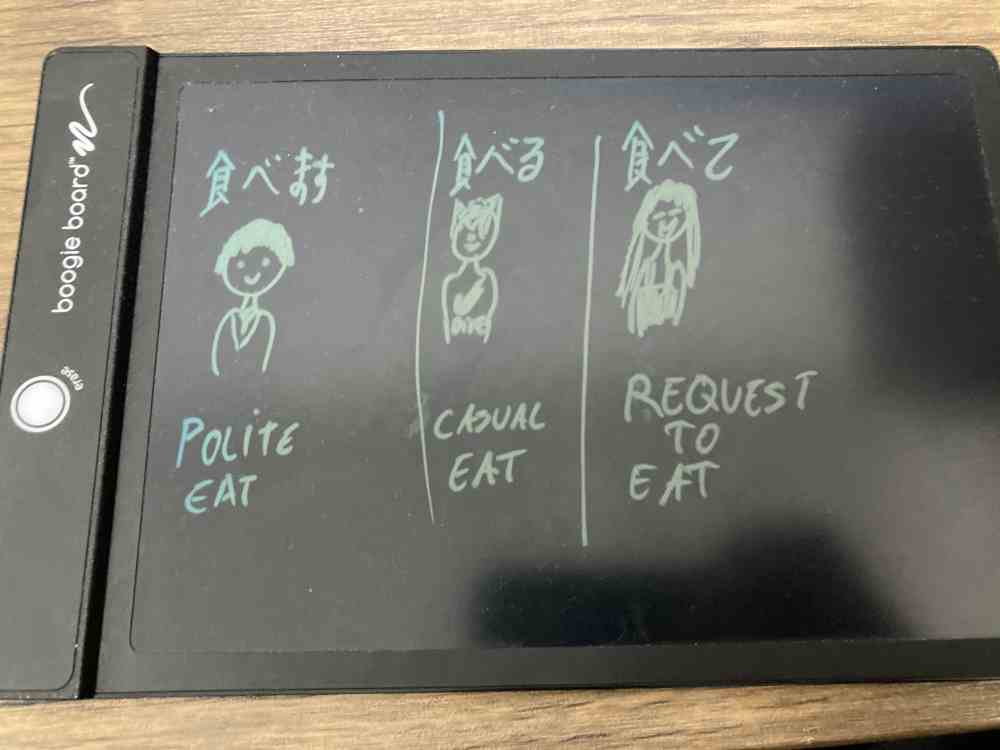-
Posts
880 -
Joined
-
Last visited
-
Days Won
49
Everything posted by 宇崎ちゃん
-
Immigrante Chapter 6: Socialist lockdown or not, you have one advantage other learners don't. Use it! Depending on the country you live in, you might be back in yet another socialist lockdown, a half lockdown, no lockdown with propaganda, or no lockdown at all. Those are no "covid lockdowns", lockdowns have proven to be more dangerous to your health than freedom of movement. It's not a pandemic if nobody is dying from it, and the only way of knowing you even have it is by using PCR test kits, the original developer of it even warned to not use it because it doesn't work. Facts of which hard, undenyable evidence can be found literally everywhere aside, whether you're forced into your home or not, if you live in the country of the language you're learning, you have many advantages compared to other learners of the same language. But one I want to talk about here is multimedia access. If you move to a new country, you probably want to work in a company to make money, and then spend it in pubs with your fellow IE, and travel and explore the country itself. As fun as that is, you won't learn the language at all that way. Plus your habits of speaking English with fellow IE won't help either. So make use of your geographical location for LL instead!! Yes, you can access foreign multimedia through the internet from almost anywhere on this planet, but believe it or not, it's way easier to do so while in your new country. Google and YouTube both have a filter bubble, it's well known, well documented, and Google themselves even admitted to it. DuckDuckGo has a switch that allows you to search for either domestic results or universal results, there's not really a way to change it without a VPN. Twitter will serve content based on your geolocation (and political believes). And don't even get me started on Fakebook, they just know where you are, regardless of how hard you try to hide or manipulate it. I've found so many Japanese YouTubers, Twitter users, Japanese websites even I didn't even know they'd exist before I came to Japan. This has been evident before I moved to Japan, because I used to travel to countries throughout western Europe and parts of eastern Europe a lot. I always found new online content from these countries while in those countries. I'll explain how to make optimal use of these content to learn a new language in the next chapter. There is 1 exception to this, and that is with English. Because it's English, the language of planet Earth. So English language content can be found in any country. Except for China and North Korea, but I guess you can figure out yourself about those. Whether you're an IE or not, try to find YouTubers, websites, other kind of media, etc. in the language you're trying to learn. Because in the next chapter I'll explain you how to make use of them, no prior language skills required!
-
Grammar is the same in all types of English, the biggest difference is in pronunciation. And American spelling + British spelling. And in 1 case Australian spelling in the case of "ise" or "ize", American English is always "ize" and "yze", Australian English is always "ise" and "yse", and British English is either of them depending on the word.
-
American English I suppose?
-
What do you mean?
-
Content designed for native speakers is always the best learning material, beats actual learning material all the time. It's harder to start off since you won't be in your comfort zone, but in the end you'll learn better and faster. The reason is, learning material will teach you what means what, so you'll end up speaking Russian or Japanese using English as a translation tool, which will make you sound rather awkward at the very least. With content designed for native speakers on the other hand, your brain will be trying to adapt itself to the language, and you'll end up speaking Russian or Japanese directly, and therefore sound natural.
-
よろしくお願いします(よろしく おねがいします) Welcome. 日本語を喋れます(にほんごを しゃべれます) I can speak Japanese. ロシア語を読めますが、あまりわかりません(ろしあごを よめますが、あまり わかりません) I can read Russian, but I don't understand it.
-
I don't speak Spanish, but in general children's books are the best way to start in any language. However, it's best to start with audio first if you're an absolute beginner. Listen to Spanish YouTubers who make videos for a Spanish speaking audience, keep listening to them all day long for let's say 3 months, even if you don't understand anything. Once your brain starts to rewire itself to understand Spanish, then you can move on to books.
-

What level is sufficient to be fluent in a language?
宇崎ちゃん replied to firewaterice's topic in Language Learning
Depends on what you mean by "fluent", since there's no universally accepted guideline for that. As I'm concerned: if you can speak the language with a native speaker, the native speaker understands you, doesn't need to correct you, doesn't get confused, and you don't need to look up words while listening and/or reading, that's what I consider "fluent". -
Immigrante Chapter 5: Regrets of moving to a different country, what to do about it? No country is perfect. Moving to a different country is a huge decission, and so is moving back to your own country. People around the world have the habit of travelling to different countries and exploring all they have to offer, if you have this habit, awesome! But there comes a time when you visit a country which you end up loving so much, you want to come back again and again, until you finally decide to stay. Sometimes you come for the 2nd time with the purpose of applying for residency status. Sometimes you never apply for residency status, and instead come in with a very broad budget and maybe a location independent job, and go border hopping and stay for as long as a tourist visa legally allows you to. Sometimes you get paid to come in illegally. Sometimes you have no other choice than to move to a different country (state of war, or you get the death sentence for something you didn't do, or maybe you did, etc.). But however you're staying in a different country, you will experience a time when you feel like everything around you is fake, people are horrible, nobody wants to know you, you can't understand anything, you don't trust anyone and anything, you miss your family and/or friends, etc. This is part of moving to a different country, literally every IE experiences it at some point within their 1st year. Many give up and move back, some remain strong and stay, and few even end their lives. The good news is, this is all temporary. This is what I call the "regret phase" of moving to a different country. Moving to a different country comes in 3 phases: Paradise phase Regret phase Home sweet home phase In the paradise phase, everything seems awesome, your new country is a million times better than your original country in every aspect. Your new country is full of excitement and adventure, etc. This is the phase you'll get as soon as you leave the airport after being through hours of customs and getting your luggage, and eventually getting mentally destroyed by jetlag if you came from far away. This is the phase that every short term visitor will have and keep, considering the amount of time they spend. Normally this phase ends between 1 and 6 months later, depending on the person. In the regret phase, it's the polar opposite of paradise phase. I already explained this feeling a few paragraphes back, so I won't say it again. This phase begins immediately after the paradise phase, and ends between 2 weeks and 4 months later. Again depending on the person. If you keep it up to the very end, you'll get to the home sweet home phase. At this point you understand the realities of both the good and the bad, you'll feel comfortable in your new country, you understand more, your biological clock got adjusted, etc. Now you'll get this weird feeling that whenever you go back to your home country for a week or so, you'll feel like being in a foreign country, but in a sense of you know everything, yet you don't know anything. Congratulations! The foreign country is now unofficially your home country! And your home country is now unofficially your foreign country! That is, until you naturalise to your new home country, then you can make this official too.
-
You can find tonnes of books in all sorts of categories in English on Amazon, if that's what you're asking for.
-
One problem with your questionnaire: the postal code area 1. is required. 2. only allows numbers. The reason I say this is because I'm sure that a lot of people don't want to put in a postal code for privacy reasons (including myself), or you might live in a country where there are no postal codes at all, so I had to fill it up with 0's. And only numbers is a problem for those who want to put in their postal code, but live in a country where postal codes consist of numbers and letters (one of your neighbouring countries is a big example of that). https://en.wikipedia.org/wiki/List_of_postal_codes
-
First off, mind to explain what your company is all about? It's hard to give a correction to the name if it turns out that your business provides something entirely different (example: renovations to buildings? inside of ones' house? or electronics?). From what I learnt living in an east Asian country is that as long as English is not the language your country can speak, you can have the most absurd sounding company name you can think of, and people will troll about it on social media, which in turn doubles as free advertising and therefore a raise in revenue. One example is this osteopathy, massage and chiropractic therapy clinic:
-
I have more than 13 years of web development experience, though I have not much free time. You might find some Indian or Vietnamese, these people have the reputation of being very cheap, really good at coding, and very fast working at the same time.
-
Loading the homepage takes a very long time, let's begin with that. I'd also want you to explain me this rather questionable console logs. Plus the over-over-over-use of both external and embedded Javascript (each of them is far too much for a static webpage). It also seems like your website is fingerprinting browsers and/or devices, which is super scary stuff when it comes to privacy. My browser is in Japanese, but フィンガープリント試行 basically means "attempts at fingerprinting". It's pretty clear that you've never made a website before and this is your first try, even the source code view confirms that you're using a readily available template. So maybe it's not your intend to put so much spyware and bloat in a pretty simplistic looking webpage, but it does make me afraid to check beyond the homepage.
-

Fastest ways to re-learn a language that worked for you?
宇崎ちゃん replied to Sonesheka's topic in Language Learning
Reading a language you're no longer used to will be slow. The only way to speed up your reading ability is by reading as much as you can. Maybe you should put your PC or phone interface to Russian to speed it up. Even if you don't need to read the buttons, you eventually will. And if you do, it adds up to your exposure to the language. As for grammar, no need to worry about it. The more you're exposed to Russian whether in reading or listening, the sooner your brain will start to understand the grammar by itself. -

Fastest ways to re-learn a language that worked for you?
宇崎ちゃん replied to Sonesheka's topic in Language Learning
To learn and improve I have some very basic tactics that I've explained quite a lot over the past few months. To re-learn is a little bit different. Technically you don't re-learn a language, you remember it. One example is when I had German in middle school, I forgot right about everything about it after I left. But since one of my native languages is very closely related to German and I grew up in the Netherlands, it took me 1 month of practising German over Skype for 3 times a week to remember it all (and forget again due to not using it at all after that). Do you know how to read the cyrillic script? In that case I recommend you to read some Russian novel. Considering it's your native language and you used to be able to speak it, you'll be amazed by how much you'll be able to understand it really fast. -

My two struggles: What to learn and how to have more time to learn German?
宇崎ちゃん replied to Advx's topic in Language Learning
Might sound a bit weird to new language learners, but if you want to push yourself beyond A2, quit Duolingo! Duolingo (or any other language learning apps) should be seen as a way to obtain some words to prepare yourself for the real learning. Books are the exact same thing, except a bit more boring. Say, language apps or books, or actually every other type of in between resource is a leaf of a tree, listening and reading practise is the tree itself. The park is fluency of the language, and the forest is mastery of the language □■□■□■□■□■□ As for time, devoting time straight away is pretty much guaranteed to fail. Instead it's a better idea to develop a habit. Of course it depends on how your day looks like, but how I do it: Since the political flu took control over all of society last February or March (depending on where you live), companies decided to go more and more on telework, mine included. And since I have 1 hour of lunch break, I use half of that time reading manga in Japanese (I bought lots of them, and getting more as I complete them). At the beginning you'll get to give up as soon as you start reading, but at the very least make sure you read 2 pages (if an entire page is without text, make it 3 pages), make sure you continue with that same comic during lunch break every day, and you'll naturally start grabbing the comic without thinking. At the same time, you'll start being able to read more and more bit by bit, and 2 pages would eventually become 2 chapters within the same time span. For German you'd simply read German comics instead of Japanese ones of course, but the practise is the same. For listening I can recommend YouTube. Create a playlist, find videos in German, put them in that playlist, and have them playing in the background while working for passive listening, and do active listening in your free time. You probably won't understand anything at first, but the more you keep up with it, the more you'll start to understand. Other things you can do is setting your computer and phone interfaces to German, game consoles if you have any in German, etc. If you have German speakers nearby, definitely try to talk to them in German. They'll appreciate it, and you'll get practise at the same time, even if you just say "nice weather hey?" in German. You might add bratwurst to your diet, not that it will help you learning German, it's just delicious! One general thing about your choice of comics and YouTube videos is, no language lesson or language tutorial videos. As long as it's made for native speakers, you're good. □■□■□■□■□■□ I hope you'll find my tips to be useful. It could be hard to understand as to how that's supposed to work due to the way people learn at schools and such, but all it comes down to is having your brain to rewire itself to understand the new language by itself. Doing drills actually only prevents your brain from understanding a new language. -
Maybe the use of pictures might be easier to understand instead. Because if you have a class of people speaking different native languages, it might cause some people to not understand. A story that makes perfect sense to an English speaking American might make no sense at all to a Mandarin speaking Chinese for example. And I myself can't really think of stories for all conjugations. But one I recommend you to teach the most of the differences between for example 食べれる and 食べられる, it's pretty easy to say "I was eaten by a raw fish" while you meant to say "I can eat raw fish".
-
That's indeed the best way to describe it, yes. There is indeed a verb "to supervise", but that doesn't mean that any word that replaces "supervision" automatically makes it a verb. Consider for example "to eat dinner" and "to eat fruit". "Dinner" can become a verb "to dine", but "fruit" can never become a verb, and maybe you have fruit for dinner.
-
Ah, legal language! Still, "exercise" is the verb, not "overview". In the case, "exercise" is used to write an as detailed report as possible...I assume. Legal language is always vague on purpose so that the slave regular citizen doesn't notice any of the double standards their masters the politicians always tend to employ.
-
"Overview" is never a verb. The verb in that sentence is "exercises". You can simply add "he" or "she" before "exercises" to see it. Although unless the sentence was used at a gym or something, it does seem pretty weird to me. Overview is usually meant to mean something like a summary, or a bunch of stuff which you can see everything in 1 sight (example: table of contents found at the beginning of most books, or at the top of long Wikipedia articles).
-
English in a typical doctors' handwriting? It's so common, the whole world has been memeing about it for decades.
-
Simply put, you watch TV in order to see a program. https://learningenglish.voanews.com/a/do-you-know-the-differences-between-look-watch-and-see/4880198.html If you are talking about something that your eyes simply observe, you can use “see.” If you are directing your eyes at something, use “look.” And if you are paying attention to something, like a game or television program, for a period of time use “watch.”
-

How dificulf is for you to learn a new lenguage?
宇崎ちゃん replied to Zaky Grillo Castro's topic in Language Learning
It looks like an Italki clone. So a website that allows real native speakers and/or certified teachers provide 1 on 1 lessons via Skype. If you have no access to a native speaker or a 1 on 1 teacher in your local area, or if you have but they're too shy (common among east Asians), then this kind of online language learning is a very good way to learn. However, it costs money, you don't have the money to keep it up 24/7, and they don't have the time to keep it up 24/7 either. It's still important to keep practising outside of the time you spend with the teachers/natives, otherwise this will end up being nothing different from learning via apps or books when it comes to progress. Examples of practise: Reading books in your target language. Searching on Google (or DuckDuckGo) in your target language Watching YouTubers in your target language Normally other people would recommend watching/reading the news in your target language. But for your own mental health, you should skip the news because the mainstream media in every country provide nothing but conspiracy theories these days.





